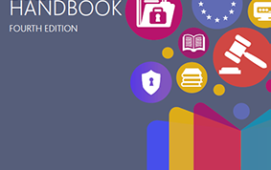
Clausematch, a UK-based RegTech, is on a mission. The company wants to unleash the unstructured data found within compliance processes to help create a more connected approach to shaping organisational culture within financial firms. According to founder and CEO Evgeny Likhoded, Clausematch technology helps banks implement and manage internal policies procedures, as well as demonstrate that those policies and procedures are compliant with regulation. Then, on an ongoing basis, the solution helps financial firms show how policies and procedures have changed over time, ensuring they are compliant. There is a full audit trail of how they were changed, how approvals were given, and how they were distributed to employees.
Embracing unstructured data
The solution does this by diving deep into the unstructured data in policies, regulations and other compliance documents. “If you look at policy management itself, we don’t look at policies as files, we look at policies as data and as content inside policies and then we apply version control to each paragraph, for example,” says Likhoded. “We can have approvals being granted not just at the document level, but at the paragraph level.” The level of audit trail is so deep, according to Likhoded, that the whole change policy modification process is recorded – comments, approvals, and text changes. This is all done in a single version in real time.
Because the solution processes all the unstructured policy content at a granular level, Clausematch has been able to create an AI algorithm that looks at policy content and matches it to regulatory obligations that have been ingested. As well, the solution can bring in controls from other GRC systems and the algorithm will find dependencies and related content.
The financial services industry, keen to comply with new conduct-focused rules such as the UK’s Senior Managers and Conduct Regime (SMCR), has taken notice of Clausematch’s efforts. The firm is a graduate of TechStarsBarclays Accelerator programme in 2014, and is working with several global financial institutions, including Barclays and Revolut, the digital-only bank.
Taking the next step
Today, Clausematch is using research in Natural Language Processing (NLP) to enhance its AI algorithm to become more domain-specific. The company is also doing more research into human behaviour conduct in order to understand how technology can help financial institutions maintain and improve the conduct of employees. For example, it may be possible at some point in the future, to derive behavioural intelligence from the way employees engage with policies, such as when they access them, to detect and prevent misconduct.
Says Likhoded: “Ultimately, that might have an impact on the actual capital requirements for conduct.” The company is also expanding geographically, recently starting operations in South East Asia, out of Singapore. To support all of this activity, Clausematch closed its first venture debt funding round with Silicon Valley Bank in June 2019. The $2.5 million loan package will be allocated to support the company’s continued growth in Europe and Asia.
Subscribe to our newsletter




